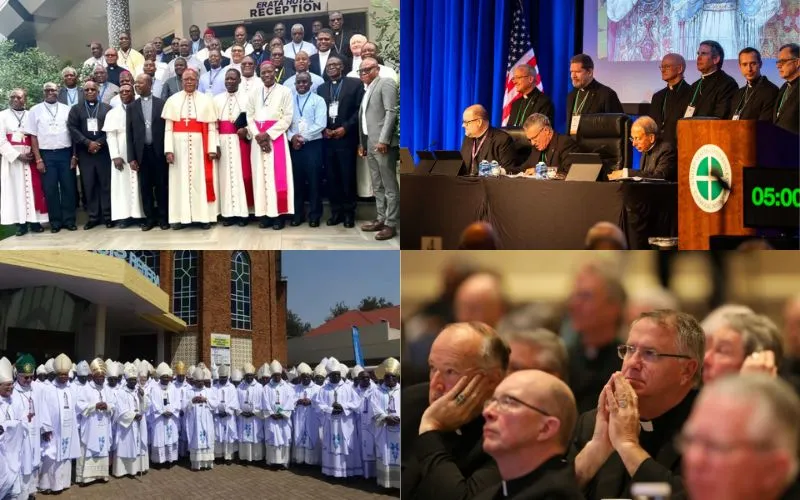Despite his suspension, Alia continued to wear his clerical collar during his nine-month campaign, grating against the sensibilities of many fellow priests who knew of his suspension, but since wearing his priestly garb at his inauguration he has donned traditional clothing or Western business suits. Alia has said he plans to return to the ministry after his public service concludes. He declined an interview request by CNA.
Grazing rights loom large
The new governor faces tall challenges in Benue, a state located at the confluence of Nigeria’s two great rivers, the Niger and the Benue, which boasts some of the nation’s richest soil. Due to terrorism and land grabs by so-called unknown gunmen or bandits, Benue is home to some of the nation’s poorest people. At least 2 million are reportedly languishing in internally displaced persons (IDP) camps.
In a June 6 video press conference, Alia stressed his determination to secure Benue’s border with neighboring Nasarawa State. “We have a lot of loopholes at the border. Last Sunday I called for all illegal points to vanish. We have 16 checkpoints, and only those should be in place. They have to function,” he said.
Benue has a history of tribal warfare, but a decade-long conflict between the Fulani tribe and the dominant tribes indigenous to the state has left tens of thousands of farming families homeless. On June 3, five days after the inauguration, an attack in Mbacher Council Ward of Katsina-Ala County in the southeast area of Benue, reportedly by “unknown gunmen,” killed at least 25 residents. Following attacks in the second week of June brought the number of dead to more than 40.
(Story continues below)
Alia addressed Nigeria’s “insecurity” in his inauguration speech.
“During the campaigns, we traversed the length and breadth of our state and I personally saw, firsthand, the appalling situation of our people,” Alia said.
“Town after town and village after village, you waited for hours on end for our campaign train to arrive. That wait was not for Father Alia or my Deputy Barr Sam Ode. You were waiting for hope. renewed hope. And I want to assure you, Benue: Hope is here!” he said.
“As your governor, I am committed to working with security agencies and the federal government to ensure the safety of lives and property in our state. We will also work tirelessly to address root causes of insecurity, such as poverty, unemployment, and social exclusion,” Alia said.
Alia did not mention the concern of most Catholic clergy interviewed by CNA who said that sectarian hatred by Muslim herders played a part in the terrorism. You can watch his speech in the video below.
The new governor pledged to stop the terrorist attacks and boost the economy by bringing in private-sector investors. Former Gov. Samuel Ortom had defined himself as the foremost critic of controversial outgoing President Muhammadu Buhari, a member of the Fulani tribe and the prior head of Alia’s party, who has been accused of turning a blind eye to violence and banditry.
Ortom led his state to outlaw open grazing on farmers’ crops, a measure that the Fulani tribe’s herding class opposed with vengeance. In his inaugural speech, Alia pledged to review and possibly revise the ban. “We are inheriting an anti-open-grazing law whose implementation has become controversial,” he said. “Having gone through some period of implementation, it is fit and proper for us to review the law to identify the lessons learned, hold the gains made if any, and reform to accommodate current realities.”
Alia also has pledged to reopen the spigot of federal funding to Benue to pay the salaries of the police and state employees whose salaries come from the national government.
“Politically, our state has been disconnected from the federal government because of bad politics,” he said. “We commit to reconnecting Benue State to the proverbial ‘National Grid’ of Nigerian politics in order to harvest the benefits.” It will not hurt that Alia’s mentor in the All Progressives Party, former Benue governor and senator George Akume, has been promoted to an influential role in President Tinubu’s cabinet.





 Bishop William Avenya of Gboko, Nigeria, suspended Father Hyacinth Iormen Alia from the priesthood because of his decision to run for governor of Benue State. Courtesy of the Diocese of Gboko
Bishop William Avenya of Gboko, Nigeria, suspended Father Hyacinth Iormen Alia from the priesthood because of his decision to run for governor of Benue State. Courtesy of the Diocese of Gboko


